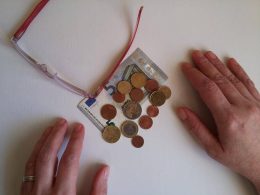Cost is the expense incurred to purchase a product or service. Total cost is the total amount of expenses incurred to purchase a product or service. Unit cost is the total cost divided by the number of units of the product or service.
What are total variable unit costs? Definition of the term
Total variable unit costs (variable unit cost) are all costs that are directly related to the production of a good or service. They are therefore dependent on the quantity of the product produced. Variable unit costs can refer to materials, energy, labor, etc. In the case of manufacturing companies, total variable unit costs are estimated on the basis of data on total production costs and the quantity of the good produced.
For service companies, on the other hand, total variable unit costs are calculated using information on the quantity of services provided and the total cost of providing them. Measuring total unit cost changes is important because it allows a better understanding of the dynamics of production and service delivery costs. In addition, learning about these values can be helpful in making decisions about optimizing production processes or service delivery.
Total variable unit costs – examples
In the manufacturing industry, total variable unit costs (TCU) is an indicator that helps determine the cost of producing a unit of a product or service. TCU includes all direct and indirect costs that are associated with production. Direct costs are the costs of raw materials, materials and labor that are directly related to the production of a good or service. Indirect costs are costs that are not directly related to production, but are necessary for production. Indirect costs can include, for example:
-costs of renting premises
-costs of maintaining machinery and equipment
-costs of security
-administration costs.
How to calculate total variable unit costs?
To calculate TCU, you need to substitute the values of all components into the designated coefficient. It is worth remembering that total unit costs can vary depending on the type of product or service and production methods.
Example 1
Company A produces 100 units of a given product. The cost of raw materials was PLN 2,000, labor costs were PLN 3,000, and security costs were PLN 500. All other costs, such as rental of premises, maintenance of machinery and equipment, and administration, totaled PLN 1,500. The total cost per unit (TCU) for this batch of products is: TCU = (2,000 + 3,000 + 500 + 1,500) : 100 = PLN 11.
Example 2
Company B produces only 50 units of a given product. Raw material costs amounted to PLN 1,200, labor costs amounted to PLN 2,800, and security costs amounted to PLN 400. All other costs, such as rental of premises, maintenance of machinery and equipment, and administration, totaled PLN 900. The total cost per unit (TCU) for this batch of products is: TCU = (1,200 + 2,800 + 400+ 900) : 50 = PLN 11.6.
Thus, it can be seen that the total unit cost can vary depending on the size of the product batch. The smaller the batch, the higher the total unit cost. This is due to the fact that indirect costs (such as renting premises) are spread over a smaller number of products.
In summary, total unit cost is an indicator that helps determine the cost of producing a unit of a product or service. TCU includes all direct and indirect costs that are related to production. To calculate TCU, substitute the values of all components into the designated ratio. The total cost per unit may vary depending on the type of product or service and production methods.




